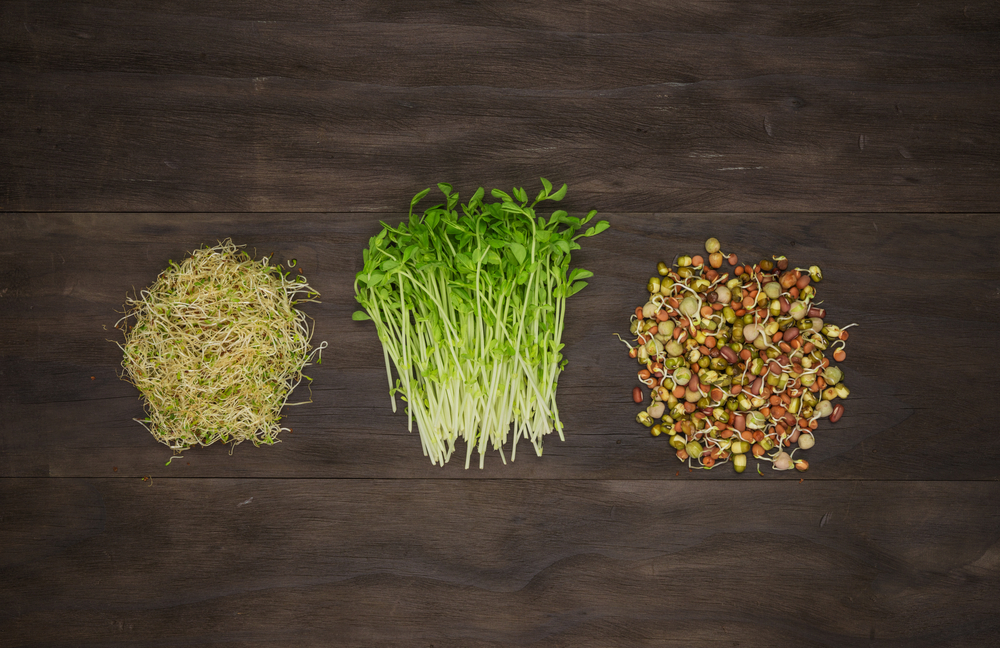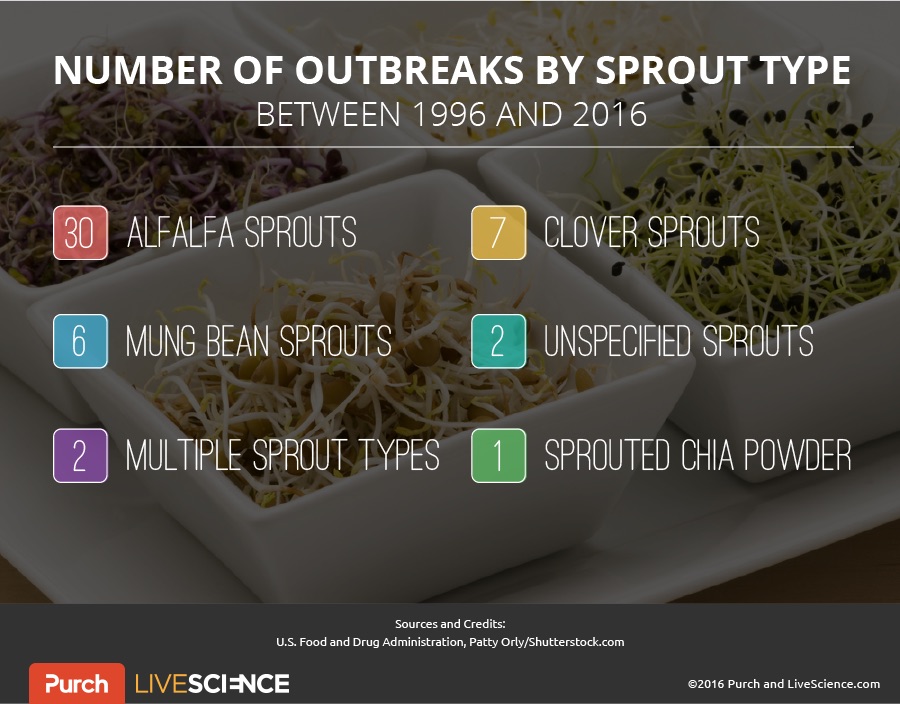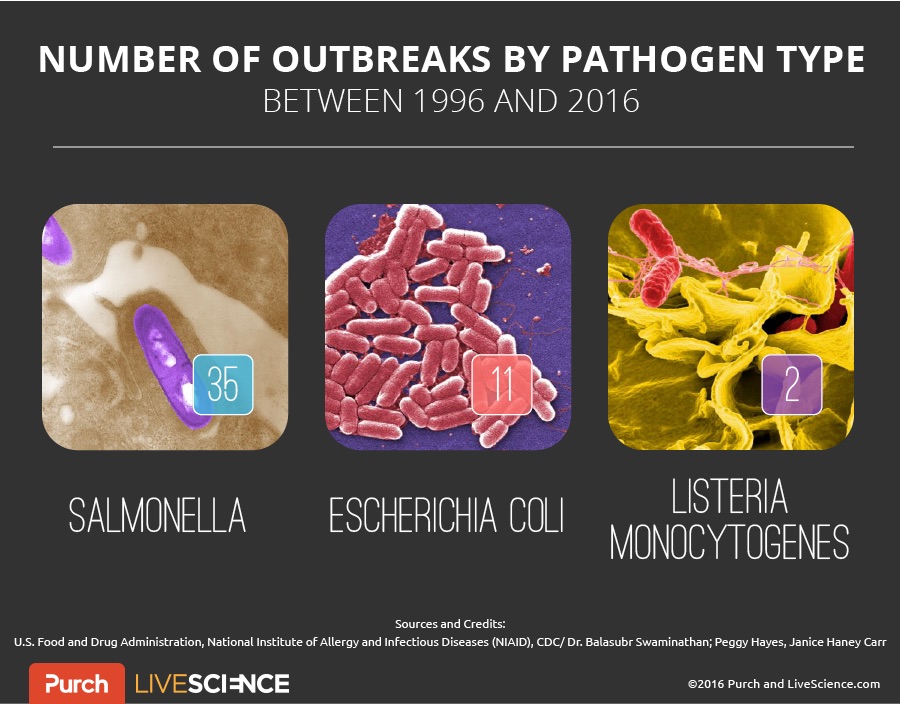Spoil Sprouts: How Little Greens Can Make You Sick

Sprouts may sound cute, but the tiny greens have sickened more than 2,500 people and caused 186 hospitalizations and three deaths in the past two decades, a new report finds.
"Sprout contamination continues to pose a serious public health concern," the researchers from the Food and Drug Administration (FDA) wrote in their report. The arm of the FDA that wrote the new report focuses on investigating outbreaks and finding ways to prevent them. The findings on sprouts were presented on Oct. 28 at IDWeek 2016, a meeting in New Orleans of several organizations focused on infectious diseases. The report on sprouts has not been published in a peer-reviewed journal.
From 1996 to August 2016, 48 outbreaks of illness were associated with sprouts, the researchers found. [Top 7 Germs in Food That Make You Sick]
Alfalfa sprouts were the most common culprit during the study period, with 30 outbreaks. There were seven outbreaks linked to clover sprouts, six outbreaks linked to mung bean sprouts, two outbreaks linked to unspecified sprouts, two outbreaks linked to multiple sprout types and one outbreak linked to a food ingredient called sprouted chia powder, the FDA found.

Sprouts carried a number of different types of bacteria, the researchers found. Salmonella was implicated in the greatest number of outbreaks, at 35, followed by Escherichia coli (11 outbreaks) and Listeria monocytogenes (two outbreaks), according to the report.

Of the three sprout-related deaths during the study period, two were attributed to Salmonella and one to Listeria.
Sprouts "certainly rank up there" among types of produce that have been linked to outbreaks, said Dr. Kathleen Gensheimer, the director of the FDA's Coordinated Outbreak Response and Evaluation Network and the lead author of the study.
Sign up for the Live Science daily newsletter now
Get the world’s most fascinating discoveries delivered straight to your inbox.
Sprouts' propensity to harbor dangerous bacteria has to do with how they are grown, Gensheimer told Live Science. To grow sprouts, seeds are placed in water in a warm, humid environment that is ideal for rapid bacterial growth, she said.
That means that if a seed is contaminated with bacteria before the sprouts are grown, the problem gets worse during the sprouting process, because the bacteria will multiply, Gensheimer said. Indeed, in most sprout outbreaks, the outbreak stemmed from seeds that had been contaminated with bacteria before the sprouting process began, she said. Bacteria can get on a seed when it's being harvested and can survive for months in the dry conditions in which the seeds are stored, she said.
Alfalfa sprouts, the most common source of an outbreak in the study, are the most popular type of green seed sprouts that are typically eaten raw, Gensheimer said. Sprouts that come from green seeds, including alfalfa sprouts, clover sprouts and radish sprouts, typically aren't cooked before they are eaten, and so they are more commonly associated with outbreaks. In contrast, sprouts that come from beans, such as mung bean sprouts and soy bean sprouts, typically are cooked, she added.
Thoroughly cooking sprouts can reduce a person's risk of getting sick, because cooking can kill the harmful bacteria, Gensheimer said.
But sprouts can be a "stealth ingredient," Gensheimer added. They're the type of ingredient that may be added to sandwich or a salad in a restaurant or deli without being mentioned, she said.
Currently, the U.S. government says that people who are the most at-risk for infectious diseases should avoid eating raw or lightly cooked sprouts of any kind, Gensheimer said. This includes children, the elderly, pregnant women and people with weakened immune systems, she said.
Originally published on Live Science.











